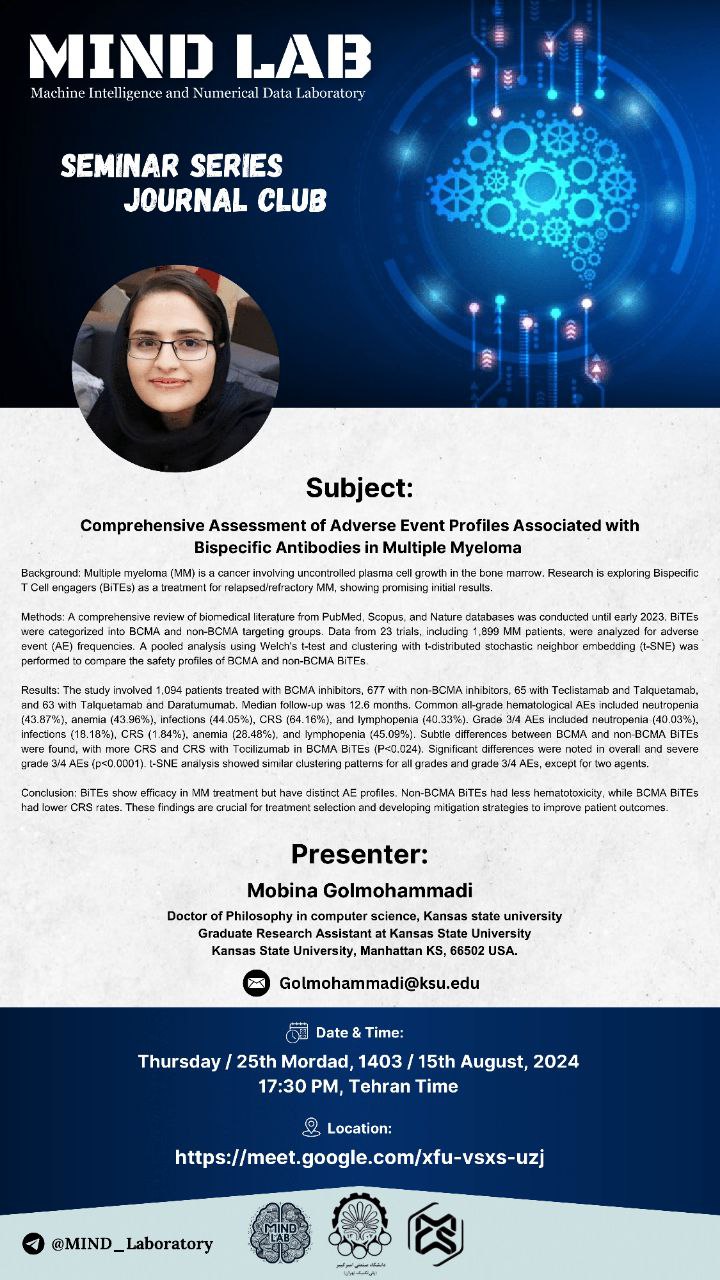Comprehensive Assessment of Adverse Event Profiles Associated with Bispecific Antibodies in Multiple Myeloma
Posted on: 15 Aug 2024

Related Links:
Multiple myeloma (MM) is a cancer involving uncontrolled plasma cell growth in the bone marrow. Research is exploring Bispecific T Cell engagers (BITES) as a treatment for relapsed/refractory MM, showing promising initial results. Methods: A comprehensive review of biomedical literature from PubMed, Scopus, and Nature databases was conducted until early 2023. BITES were categorized into BCMA and non-BCMA targeting groups. Data from 23 trials, including 1,899 MM patients, were analyzed for adverse event (AE) frequencies. A pooled analysis using Welch's t-test and clustering with t-distributed stochastic neighbor embedding (t-SNE) was performed to compare the safety profiles of BCMA and non-BCMA BITES. Results: The study involved 1,094 patients treated with BCMA inhibitors, 677 with non-BCMA inhibitors, 65 with Teclistamab and Talquetamab,and 63 with Talquetamab and Daratumumab. Median follow-up was 12.6 months. Common all-grade hematological AEs included neutropenia (43.87%), anemia (43.96%), infections (44.05%), CRS (64.16%), and lymphopenia (40.33%). Grade 3/4 AEs included neutropenia (40.03%), infections (18.18%), CRS (1.84%), anemia (28.48%), and lymphopenia (45.09%). Subtle differences between BCMA and non-BCMA BITES were found, with more CRS and CRS with Tocilizumab in BCMA BITES (P<0.024). Significant differences were noted in overall and severe grade 3/4 AEs (p<0.0001). t-SNE analysis showed similar clustering patterns for all grades and grade 3/4 AEs, except for two agents. Conclusion: BITES show efficacy in MM treatment but have distinct AE profiles. Non-BCMA BITES had less hematotoxicity, while BCMA BITES had lower CRS rates. These findings are crucial for treatment selection and developing mitigation strategies to improve patient outcomes.